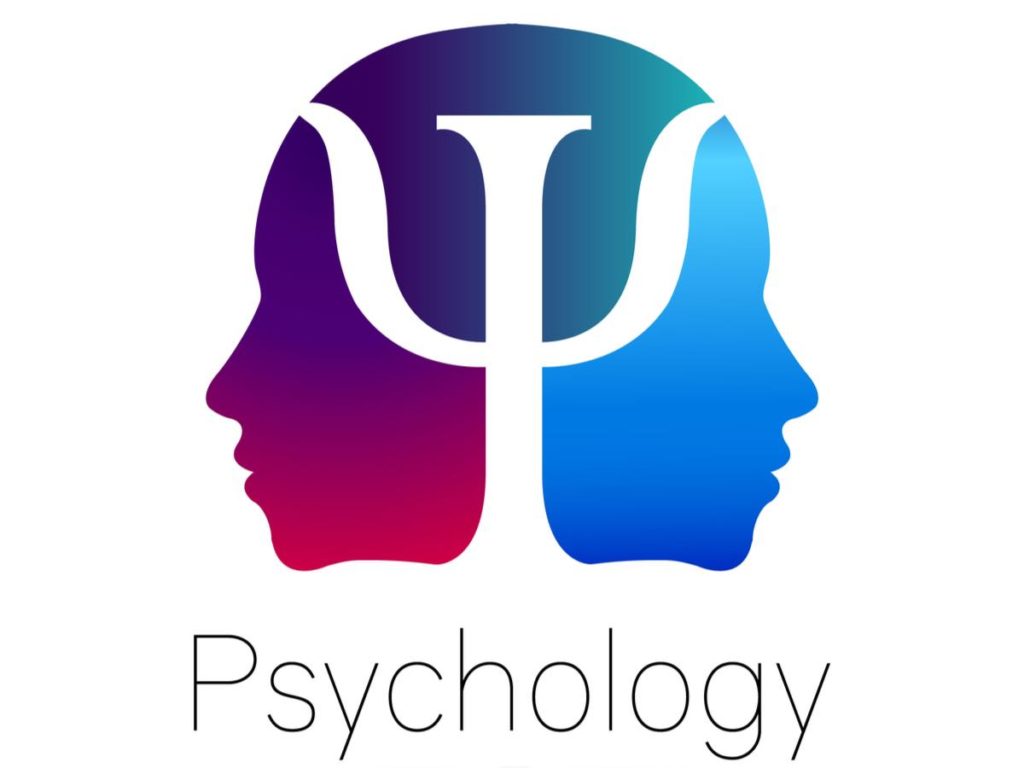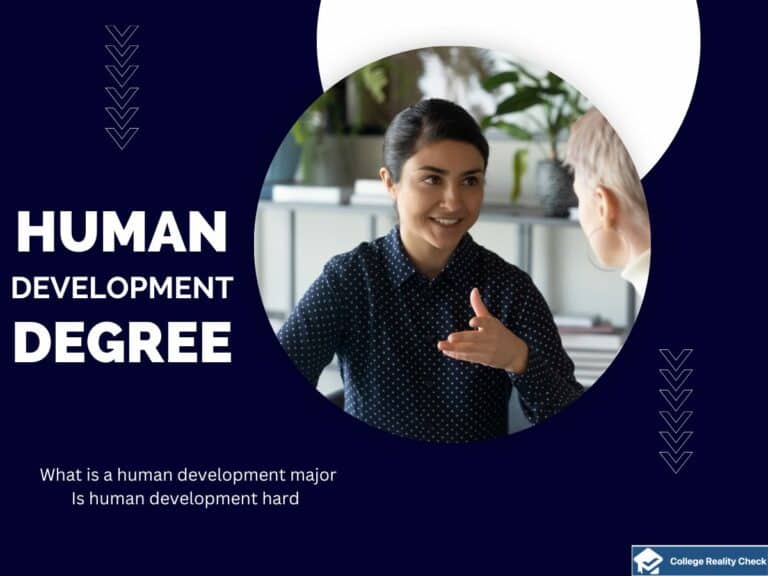Making Up Your Mind: Is Psychology the Major for You (Quiz Included)?
University of Zurich scientists say that, just like fingerprints, there are no two human brains alike.
That could easily be a mind-blowing fact for anyone who finds understanding and connecting with other individuals interesting, as it would mean that each person they interact with provides a different experience.
If you’re one of them and headed to college, chances are that psychology is on your list of prospective majors.
But there are many more things to consider before enrolling in an undergraduate psychology program than just your genuine passion for listening and giving advice to your family and friends.
A bachelor’s degree in psychology WILL NOT allow you to work as a clinical psychologist.
However, it’s a stepping stone to that.
Majoring in psychology, which is a broad discipline that allows for multiple specializations, is a great move for students who want the opportunity to work in various industries, taking on an assortment of roles.

Psychology Major: Popular, But Not Easy
Fact: psychology is one of the most popular undergraduate degrees.
That’s according to data the National Center for Education Statistics (NCES) provides.
In 2021 alone, around 58% of the 2.1 million undergraduate degrees American four-year colleges and universities conferred were under these studies, in the following order:
- Business
- Health professions
- Social sciences and history
- Biological and biomedical sciences
- Psychology
- Engineering
Despite its popularity, psychology is not the easiest college major around.
It’s also not the hardest, either — while it requires a lot of reading, writing, critical thinking, and problem-solving, having problems with your grades is unlikely if you do your part as a good undergraduate student.
Many of the courses are introductory courses to various psychology disciplines.
Just take a look at the following common examples:
- Introduction to Psychology
- Introduction to Developmental Psychology
- Introduction to Cognitive Neuroscience
- Introduction to Learning and Memory
- Introduction to Social Psychology
- Introduction to Cultural Psychology
- Introduction to Clinical Psychology
- Introduction to Abnormal Psychology
- Introduction to Personality and Affective Science
Most colleges require psychology majors to take several psych electives, too.
Typically, a bachelor’s degree in psychology is around four years long.
Graduation requirements usually include completion of more than 50% of the units by taking coursework in psychology.
According to Niche, here are the top 20 best colleges for psychology:
| Ranking | Institution | Location |
|---|---|---|
| #1 | Stanford University | Stanford, CA |
| #2 | Yale University | New Haven, CT |
| #3 | University of California, Los Angeles | Los Angeles, CA |
| #4 | University of Michigan – Ann Arbor | Ann Arbor, MI |
| #5 | Harvard University | Cambridge, MA |
| #6 | University of Pennsylvania | Philadelphia, PA |
| #7 | Columbia University | New York, NY |
| #8 | Northwestern University | Evanston, IL |
| #9 | Vanderbilt University | Nashville, TN |
| #10 | University of Southern California | Los Angeles, CA |
| #11 | Duke University | Durham, NC |
| #12 | Rice University | Houston, TX |
| #13 | Washington University in St. Louis | Saint Louis, MO |
| #14 | Dartmouth College | Hanover, NH |
| #15 | New York University | New York, NY |
| #16 | Brown University | Providence, RI |
| #17 | Princeton University | Princeton, NJ |
| #18 | University of Florida | Gainesville, FL |
| #19 | University of California, San Diego | La Jolla, CA |
| #20 | University of Chicago | Chicago, IL |
Just because Niche believes that a postsecondary institution offers one of the best bachelor’s degrees in psychology doesn’t necessarily mean it’s the one you should attend.
Various things need consideration, not just the program available.
Remember to also look into other factors, from the location to the cost of attendance, before you choose a college.

Don’t Psych Out: Job Opportunities Come Aplenty
I cannot stress enough the fact that majoring in psychology won’t make you a psychologist.
You will need a more advanced degree than a bachelor’s for that.
However, I got great news!
Individuals with an undergraduate degree in psychology can work in numerous fields, which means there are plenty of career opportunities waiting for them after graduation.
They have pretty much the same job prospects as social sciences and liberal arts graduates.
Here are some of the industry options:
- Advertising
- Banking
- Corrections
- Customer service
- Finance
- Hospitality
- Human services
- Insurance
- Law enforcement
- Marketing
- Nonprofit
Let’s take a look at some of the most popular jobs for psychology majors and their average salaries:
| Job Title | Average Annual Salary |
|---|---|
| General Manager | $99,021 |
| Marketing Manager | $89,864 |
| Technical Writer | $83,330 |
| Market Research Analyst | $81,568 |
| Research Associate | $80,529 |
| Social Services Director | $74,778 |
| Career Counselor | $74,198 |
| Advertising Manager | $69,831 |
| Parole or Probation Officer | $69,257 |
| Sales Representatives | $68,886 |
| Human Resources Specialist | $67,974 |
| Social Service Specialist | $49,969 |
| Mental Health Technician | $47,801 |
| Child Care Worker | $42,279 |
Average salary source: Glassdoor
So, how do you become a clinical psychologist?
After earning your bachelor’s degree in psychology, attend graduate school to earn a master’s degree in psychology, which requires spending an additional two to four years in school.
However, it would only be enough for being a school or industrial-organizational psychologist.
You need to earn a doctorate in psychology to become a clinical psychologist in various settings.
But it doesn’t stop there: it’s also necessary to obtain one to two years of supervised professional experience and pass the Examination for Professional Practice in Psychology (EPPP) to obtain your license.

Psychology is a Good Major. But is It Good for You?
An undergraduate degree in psychology isn’t one of the most popular for nothing.
Being a versatile program, running out of career opportunities should be the least of your worries, especially if you are willing to take on jobs in different industries.
Of course, it’s not just your job market value when deciding whether or not psychology is for you.
You should also consider your interests, personality, and potential before you decide to major in it — attaining academic success as a psychology student is, first and foremost, essential.
Take the quiz below if you’re still on the fence.
1. Do you like stepping in if someone needs help?
- A. Yes
- B. No
- C. Sometimes
2. Do family and friends run to you for advice?
- A. Yes
- B. No
- C. On occasions
3. Do you never judge a book by its cover?
- A. Yes
- B. No
- C. It depends
4. Do you love listening to people talk about themselves?
- A. Yes
- B. No
- C. Every now and then
5. Do you know how to keep a secret?
- A. Yes
- B. No
- C. Once in a while
6. Do you enjoy researching?
- A. Yes
- B. No
- C. Sporadically
7. Do you enjoy analyzing data and coming up with conclusions?
- A. Yes
- B. No
- C. At times
8. Can you communicate very well?
- A. Yes
- B. No
- C. Once in a while
9. Are you very good at dealing with stress?
- A. Yes
- B. No
- C. At times
10. Are you willing to study for long periods of time?
- A. Yes
- B. No
- C. If I feel like it
Mostly A’s
Psychology may be the right program for you. You seem to demonstrate a lot of the traits of students who tend to succeed academically as psychology majors, from critical thinking to communication skills.
Mostly B’s
Majoring in psychology may or may not be the greatest for you. Perhaps it’s a good idea to look into similar majors like business, communications, education, marketing, political science, public relations, social work, and sociology.
Mostly C’s
I would suggest giving the college major selection process some time. Consider taking a variety of electives to determine which subjects excite you, thus allowing you to determine the right career path for you.
Here’s a video that might help you decide whether or not you should go for psychology:
Read Next: How to Become a Licensed Therapist?
Disclaimer: The views and opinions expressed in this article are those of the authors and do not necessarily represent those of the College Reality Check.





